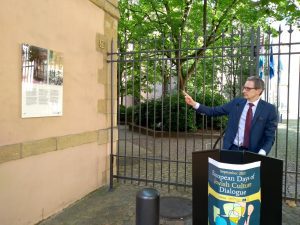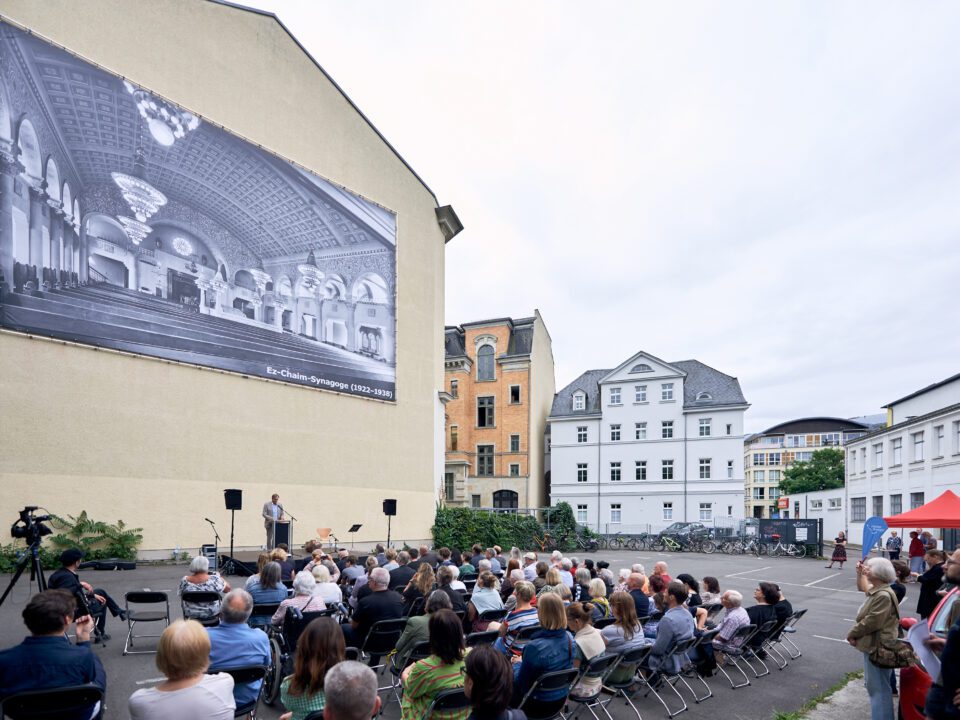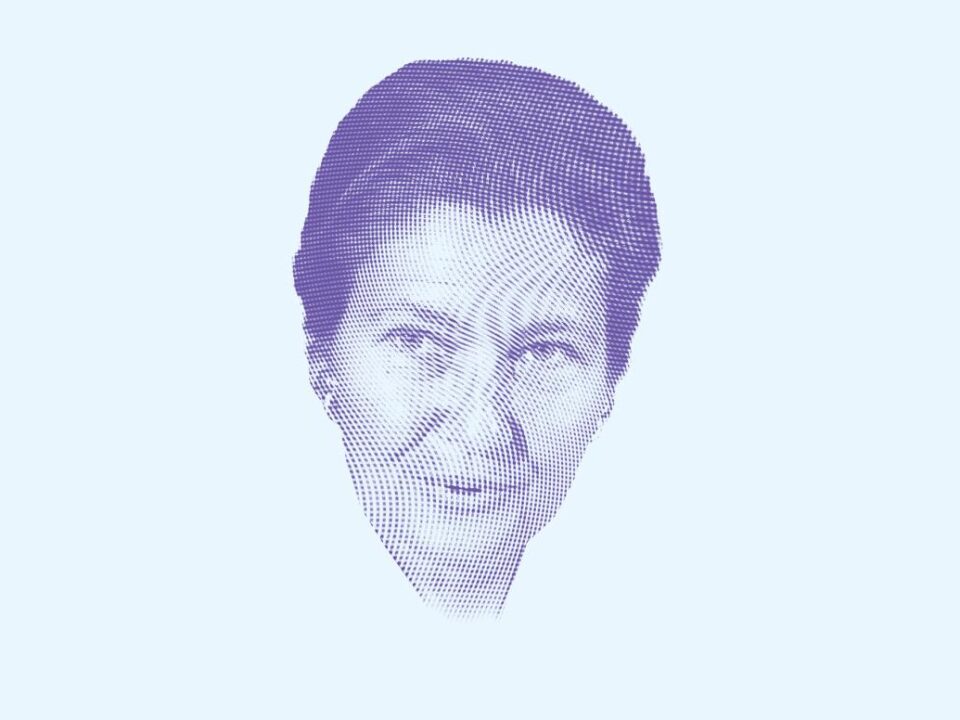Inauguration of a commemorative plaque at the site of the first synagogue in Luxembourg


Past Sunday, September 5th, in the heart of the city of Luxembourg, the kick-off of this year’s European Days of Jewish Culture was held, with the central theme of Dialogue.
After an introduction by our AEPJ President, François Moyse, as well as the addresses of the Ministers, the Mayor of the City of Luxembourg, Lydie Polfer, and the Director of the European Institute of Cultural Routes, Stefano Dominioni, the unveiling of the plaque took place in the presence of H. E. the Israeli Ambassador to Belgium and Luxembourg, Emmanuel Nashon, as well as the Chief Rabbi of Luxembourg.
The AEPJ and the Administration of Public Buildings installed a plaque that recalls the exact location of the first synagogue of Luxembourg, which occupied the premises of the former refuge of the sisters of Differdange from 1823 to 1894.

Hanging in the Hôtel Saint-Augustin (6, rue de la Congrégation, Ville de Luxembourg), this plaque marks the second step out of 30 on the Jewish heritage itinerary through the UNESCO zone “Luxembourg, old districts and fortifications”. The route can be followed with an audio guide on izi.travel or with a specially trained guide.
The launch of the Luxembourg route also marks its official integration into the European Routes of Jewish Heritage. The latter is part of the Council of Europe’s network of 45 Cultural Routes, which share the same values: human rights, cultural diversity, intercultural dialogue and mutual cross-border exchange. The European Routes of Jewish Heritage passes through 17 countries, including Turkey, Belarus, Azerbaijan, France, Spain, Poland, Portugal, Belgium, Germany and the UK. Each country has its own national routes, designed as part of a transnational route.
The Minister of Culture said that in a next step, the Luxembourg section of the European Routes of Jewish Heritage will be expanded to include other sites with a very important and exciting Jewish past to discover, such as Mondorf and Ettelbruck. Attendees were able to enjoy a tour of this new route in the city, and were treated to a jar of pickles, donated by the Krakow Jewish Culture Festival, who have supported this event through the Polish Institute in Brussels.


